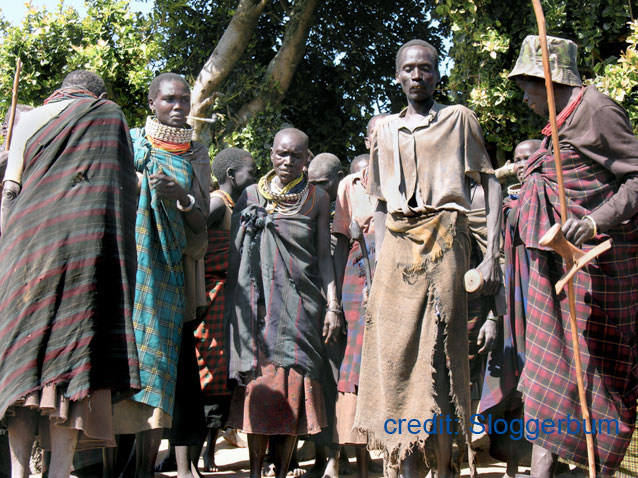The IK cultural experience takes you on a journey to meet Uganda’s unknown tribe. The Ik, also known as ‘the mountain people’ are a small ethnic group that live in the mountains of the Karamoja region in northeastern Uganda.
Despite their small population and remote location, the Ik community’s rich cultural heritage and unique way of life have captured the interest of travelers, researchers, and adventurers.
The Ik are known for being very individualistic. This reputation came from observations made by anthropologist Colin Turnbull in his book “The Mountain People,”. In this book, he portrayed these people as highly competitive and selfish who prioritize their own survival above all else, even at the expense of their families and neighbors.
However, more recent studies have shown that the Ik also value family and community ties. Their society is organized into small villages, each consisting of clusters of households known as “odok.” Each odok is made up of several families who share resources and responsibilities. Within these clusters, the Ik practice a form of communal child-rearing, where children are collectively cared for by the village.

Traditionally, the Ik were hunter-gatherers, relying on the abundant wildlife and natural resources of the region for sustenance. Over time, they had to adapt to a more sedentary agricultural lifestyle because of environmental changes, loss of land, and pressures from neighboring pastoralist groups.
They grow crops like maize, millet, and sorghum on small plots of land. However, they face challenges like soil erosion and water scarcity, which make farming difficult and bring about poverty and food shortages
Their language is called Icetot and is used for daily communication. They also have unique cultural practices like itówé-és, a three-day festival blessing the seeds at the start of the agricultural year, and ipéyé-és, a coming-of-age ritual for young men.
Marriage customs among the Ik are also unique. They practice arranged marriages, and dowries are a significant part of the marriage process. Unlike many other cultures, the Ik place a strong emphasis on individual autonomy within the marriage, with both partners maintaining a degree of independence.
For first-hand IK cultural experience, you should consider visiting one of their odoks.
You can choose to stay with local families in their homes which will allow you to share meals, stories, and experiences with host families. This will give you a picture of what daily life within the community looks like.
You can also participate in traditional ceremonies and rituals like celebrations of births, weddings, harvests, or ancestral rites. This will give you knowledge about their spiritual beliefs and values.

In addition, you can also learn about the traditional crafts and skills of the Ik. You can observe or even participate in activities such as pottery-making, basket weaving, beadwork, or traditional agriculture. Engaging in these hands-on experiences not only provides practical skills but also promotes appreciation for the craftsmanship and cultural heritage passed down through generations.
Beyond these activities, you can engage in community development projects to contribute positively to local initiatives and empowerment efforts.
Familiarize yourself with the cultural norms and traditions of the Ik people before your visit. Respect their way of life, including dress codes, greetings, and social etiquette, and ask for permission before taking photographs, especially of individuals or sacred sites.
While many Ik people may speak English or other languages, learning a few basic phrases in their language (Icetot) can go a long way in building rapport and showing respect. Simple greetings and expressions of gratitude are always appreciated.
As a visitor, you have the potential to impact the community and its environment. Minimize your environmental footprint by reducing waste, conserving water, and respecting wildlife. You should also support local businesses and artisans by purchasing goods and services responsibly.
If you’re interested in participating in cultural activities or visiting sacred sites, you should ask for permission from community leaders or elders. When you get to these sites, you should respect any guidelines or restrictions they may have in place to protect their cultural heritage.
Approach your visit with an open mind and a willingness to learn. Engage with community members respectfully, ask questions, and listen attentively to their stories and perspectives.
Accommodations in the Ik community may be basic, with limited access to amenities such as electricity and running water. Be prepared for simple living conditions and pack accordingly, including items like a flashlight, insect repellent, and toiletries.
Follow any rules or guidelines set by local authorities or community leaders. They are there to ensure the well-being of the community and its visitors.
Practice responsible tourism by leaving no trace of your visit. Dispose of waste properly and respect the natural environment.
As one of the smallest and least known tribes, the IK people have a fascinating culture that is worth digging into and learning. through an experience like visiting the IK, you can easily picture and imagine how most humans evolved from hunter-gatherers as well as other norms.
If you are someone who likes to explore the hidden gems, the IK cultural experience is something you will live to remember.
